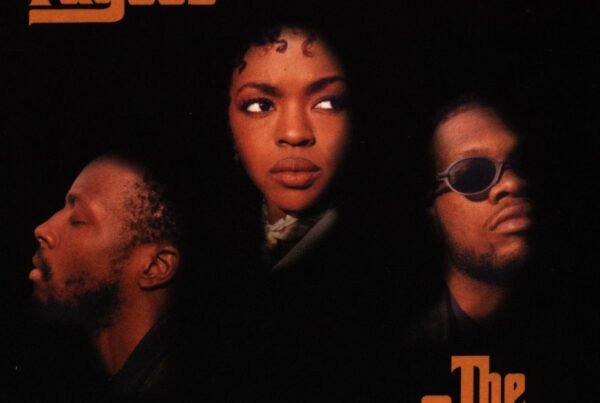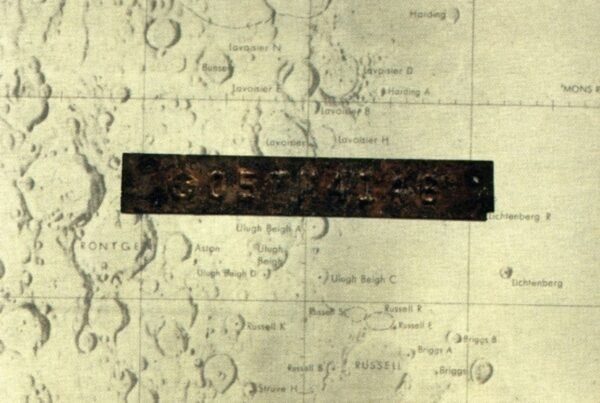Release date: February 24, 1998 | Up Records | Bandcamp | Website
The Internet has a strange tendency to lift records that have spent most of their existence in relative obscurity into the spotlight. By ‘strange’ I mean fantastic, of course – it gives us fans the opportunity to enjoy music we otherwise might’ve never heard and the creators the acclaim they deserve. Win-win! In indie rock circles, one of the most spectacular examples of this phenomenon is Duster‘s 1998 début Stratosphere, whose popularity is mostly thanks to online music communities; upon its initial release, the record has been criminally neglected.
Today, we’re celebrating this unassuming slowcore masterpiece’s 25th anniversary – well, technically it already happened yesterday, but let’s not get too hung up on that – by including it among the ranks of albums discussed on A Scene In Retrospect.
Dylan Nicole Lawson
When it comes to some really interesting shoegazey, indie rock – Duster came in the scene as almost a pioneer of the lo-fi distinction. Stratosphere was where I first heard the band, my starting point, if you will. While that is probably the case for many other listeners, even with as much music as they’ve released, I find myself coming back to this hour-long, 17-track classic most above all others.
First track I ever heard from Duster was “Inside Out”. It instantly hooked me, likely because of the chill, blood-pressure-lowering atmosphere of its tone. Within just the minimalist 2:21 duration of it, the somber guitar chords, dim tone of the drums and bass, and lightly present vocals just feel like a brain massage by way of waveform. It’s absolutely a track that could be played infinite numbers of times and still have that effect.
“Echo, Bravo” is another interesting spot on the album that feels like, in some ways, the kind of sound and style bands like Nothing, Leaving Time, or even Slow Crush have adopted. The track opens with this experimental edge, with a sort of phased filter over the drums, ringing feedback on guitars with other manipulations that make it sound like radio transmissions coming from Mars, and then it all just explodes into distorted, sludgy, melodic chords and a slowcore rhythm. What I appreciate about this song and Duster in general is that even though it was released in 1998, it has a sound about it that could have virtually been released any time later or even a bit earlier and still had its impact. For that, the music feels timeless, to a degree.
Plenty of bands may have come after Duster with a similar tinge to what they do sonically, but it is no question Duster walked so shoegaze with noisy crossover could run, so to speak. Even if they weren’t actually the first band to do what they did, or even if they didn’t directly influence bands after, they created something instantly recognizable. Perhaps the lo-fi elements is what mostly does that, perhaps it’s the faint, almost bored-sounding vocals, or even the frail production quality of drums and guitars that sound like they were recorded in some of the most primitive fashions. Regardless, anyone who is into indie rock, shoegaze, or lo-fi has likely found promise in Duster and their album Stratosphere, as well as influence; This is also a great album to put on during a cold rainy day, cuddle up in your favorite blanket, and drink your favorite tea to while you watch the rain fall.
Toni Meese
What makes music wholesome? Familiarity? Warmth? One thing I’m sure about – it can mean something different for everyone. There is a particular batch of music which defines wholesome for me. Attentive readers of The Noise Of may have already noticed regular referenes to bands like Mineral, Pinback, or Duster when I praise a special kind of sound – slow, slacker-ish indie rock with a dreamy ’90s vibe. This sound is wholesome to me like no other, and I’m really happy that todays episode of A Scene In Retrospect covers one of the very best albums in that vein: Duster‘s debut album Stratosphere.
When this album hit the streets in the late ’90s, no one really cared about it. It was a weird project by two musician who teamed up with a drummer for a couple of songs. The production tends to sound a bit off here and there, and the vocals could remind you of a poor man’s Elliott Smith. On paper, it shouldn’t be the moving gem it turned out to become, but like a lot of stuff in music – this kinda shit works in mysterious ways. Often enough, the magic in music lies in a collection of imperfections to create something truly special, and Stratosphere is a prime example for that. On 17 songs, Dove Amber and Clay Parton create memorable ‘I’m sad and lonely and I don’t care’-anthems with an overall lo-fi aesthetic – and each song inherent such beauty, such wholesomeness that is shaped my perception of music significantly, something you might not expect when you first dig in.
Everytime you feel like the vocals fade into the background in the mix, everytime you feel the guitar hits a wrong note, you aren’t able to tell if it happened on purpose or if it was just a sweet mistake. Those songs come from a parallel universe, a gazey, hazey bubble – and it only landed here by accident. There is a fascinating balance between the weirdness of being an extraterrestrial imitation of ’90s indie rock and just two guys who went for it. At the end, between all the mystery and weirdness, one thing stays for me – Duster‘s Stratosphere is my place of wholesomeness.






